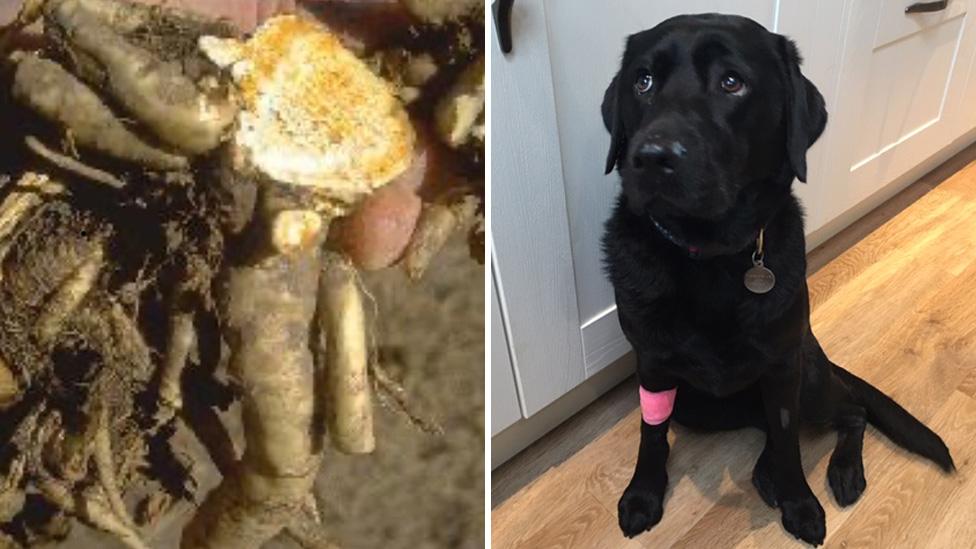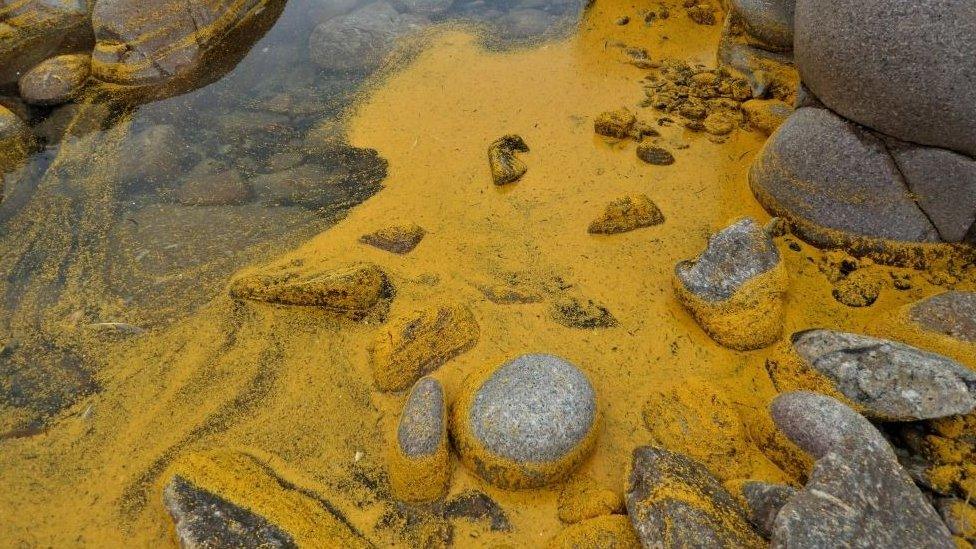Dog owners warned of deadly hemlock plant on beaches
- Published

Kimmy picked up the tubers between Barton-on-Sea and Mudeford
Owners of a dog that nearly died after eating a poisonous plant on a Dorset beach are urging others to be vigilant.
Kimmy, a black labrador, had just enjoyed a long walk near Highcliffe when she began convulsing.
It is believed she ingested the tuber roots of the potentially-deadly water hemlock, also known as Cicuta.
Her owner Sarah Hammett said Kimmy survived thanks to a Good Samaritan who drove them to a vet where she was immediately anaesthetised and treated.
Mrs Hammett said Kimmy had been "galloping around the beach" from Barton-on-Sea to Mudeford on Wednesday when she began playing with some tubers, which resembled Iris roots.
"I took them off her. I didn't think anything of it and we carried on walking," she said.
But when they arrived at a cafe in Mudeford, Kimmy began shaking.
"She looked terrified and I had no idea what was wrong. It was all made worse by the fact that I was nowhere near home and without a car," Mrs Hammett said.

Sarah Hammett said a Good Samaritan drove them to a nearby vet

A woman drove them to Priory Veterinary Hospital in Christchurch and within 20 minutes Kimmy had been anaesthetised so her stomach could be flushed out.
"It was absolutely traumatic. It was only afterwards it struck me how awful it had been and how lucky we were," Mrs Hammett said.
Priory vets reported seeing a similar case in September although neither has been officially confirmed as Cicuta.
Practice manager Nicola Holmwood said: "We would advise owners to be extra vigilant about what their dogs are investigating on walks at the moment because the weather has caused a lot of unusual items to be washed up on the beaches.
"If your dog shows any signs of tremors, fitting, trouble with the balance or other abnormal behaviour we would urge owners to seek veterinary attention as soon as possible."
Bournemouth, Christchurch and Poole Council has urged anyone who discovers the poisonous roots to report it so seafront officers can investigate.

What is water hemlock?
There are four species of Cicuta - known by its common name of water hemlock - all are highly poisonous
They grow up to 2.5m tall and have green or white flowers which grow in an umbrella shape
It grows alongside streams and in wet, marshy areas
Three of the four species contain cicutoxin which can cause seizures and respiratory failure
- Published18 December 2019

- Published17 November 2019

- Published3 January 2019

- Published11 March 2018
